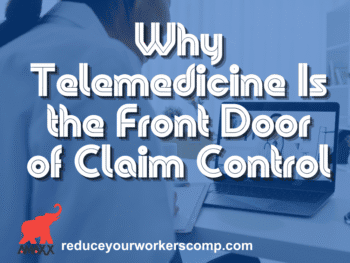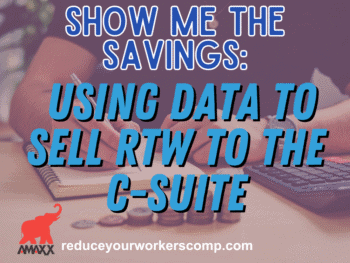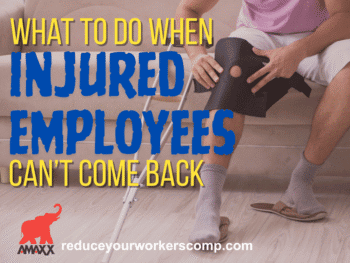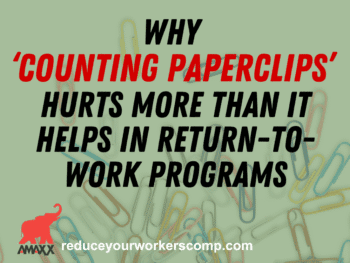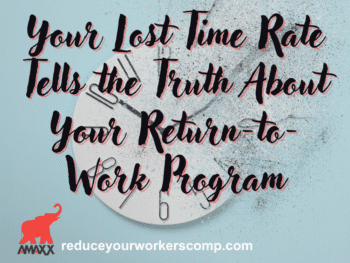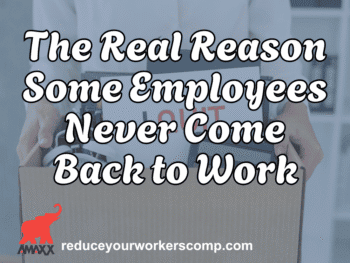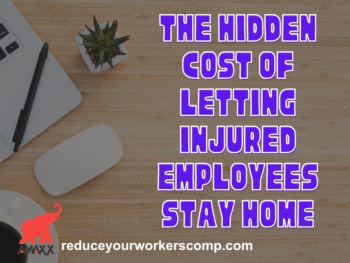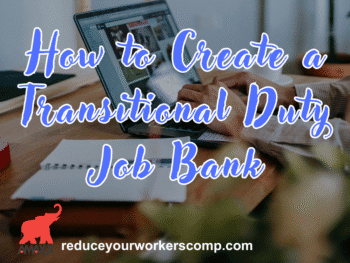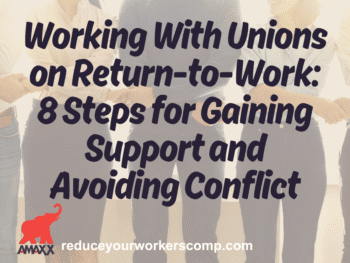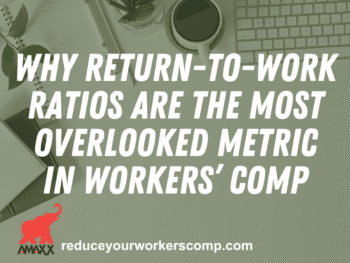
This post is one in a 4-part series:
- Using Vocational Rehabilitation to Resolve Work Comp Cases: A Primer
- Using Vocational Rehabilitation to Resolve Work Comp Cases: Eligibility For Services
- Using Vocational Rehabilitation to Resolve Work Comp Cases: Managing the Voc Rehab Plan
- Using Vocational Rehabilitation to Resolve Work Comp Cases: Dealing with Retraining
Understanding Vocational Rehabilitation Eligibility
Determinations of vocational rehabilitation services are defined by statute or administrative rule and vary in each jurisdiction. General characteristics of vocational rehabilitation eligibility include the following:
- Whether the employee is permanently precluded or is likely to be permanently precluded from engaging in their usual and customary occupation or from engaging in the job they held at the time of the work injury;
- Whether the employee cannot reasonably be expected to return to suitable gainful employment with the date-of-injury employer; and
- Considering the treating physician’s opinion of the employee’s work ability, the employee can reasonably be expected to return to suitable gainful employment by providing rehabilitation services.
Click Link to Access Free PDF Download
“13 Research Studies to Prove Value of Return-to-Work Program & Gain Stakeholder Buy-In”
Deference to the findings and opinions creates many challenges for the claiming team in instances where they question the legitimacy of the work injury or the need for restrictions. Given the timelines, claim handlers are often left without having an expert medical opinion in the form of an independent medical examination.
Challenging Eligibility for Services
The initial request by an employee for vocational rehabilitation services creates an opportunity for the claim team to scrutinize a claim. It also allows the claim handler to consult with legal counsel and discuss strategy. Factors to consider include:
- The course of medical care received to-date and whether it is reasonable and necessary to cure and relieve the effects of the work injury;
- A determination if the employee has fully recovered from the work injury and would not benefit from vocational rehabilitation services; and
- Engage in conversations with employer representatives and determine if a job offer can be made.
Vocational rehabilitation assistance is generally available to injured employees as long as they are precluded from engaging in the same work they were in at the time of the injury. While the initial consultation with a vocational counselor generally has a cost capped under statute or rule, it can be a cost driver on a claim. A careful review should be conducted on claims where the employee seeks to initiate vocational rehabilitation services. It is also crucial to understand there may be a benefit to involving a vocational expert who can assist in return to work and medical management services. Make choices wisely and avoid denying services and needlessly placing issues into litigation.
Development of a Litigation Plan
A request for vocational rehabilitation services signals a significant point in a workers’ compensation claim where a claim handler should consult with defense counsel to determine a litigation plan. While this does not require formally retaining an attorney’s services, it is prudent to get at least a better indication of when one may be needed.
- Make reasonable and justifiable decisions regarding the need for vocational rehabilitation services. This should include discussing the pros and cons of allowing the employee to proceed without objection to at least undergoing a vocational rehabilitation consultation to determine eligibility for services.
- Review the claim and determine the likely expenses and probability of future litigation. Not objecting to a consultation with a vocational counselor by the employee does not waive future rights to entitlement to vocational rehabilitation services.
- Provides time to consider exercising your right to an independent medical examination (IME) or independent vocational evaluation (IVE). Using a medical or vocational expert may be cost-beneficial depending on the nature and posture of a claim.
Every decision regarding vocational rehabilitation services should be made with compassion, empathy, and desire to get the injured employee back to work and close the claim.
FREE DOWNLOAD: “13 Research Studies to Prove Value of Return-to-Work Program & Gain Stakeholder Buy-In”
Conclusions
Decisions made at the onset of a request for vocational rehabilitation services set the course for a claim. Members of the claim management team must understand eligibility requirements and make reasoned decisions. This should include the use of defense counsel to determine the right path. Claim handlers should also consider other options, such as medical or vocational experts, to address these issues to avoid excessive litigation expenses.

Contact: mstack@reduceyourworkerscomp.com.
Workers’ Comp Roundup Blog: http://blog.reduceyourworkerscomp.com/
©2023 Amaxx LLC. All rights reserved under International Copyright Law.
Do not use this information without independent verification. All state laws vary. You should consult with your insurance broker, attorney, or qualified professional.

